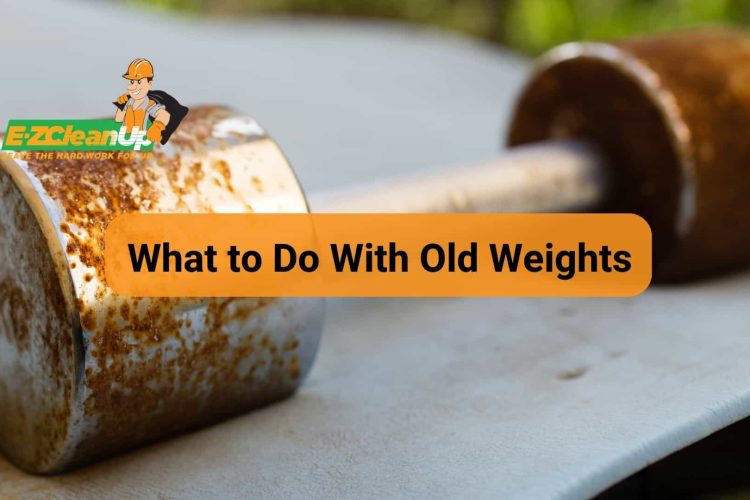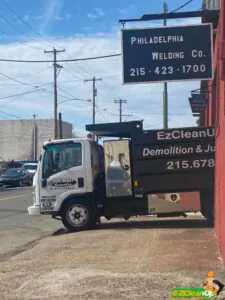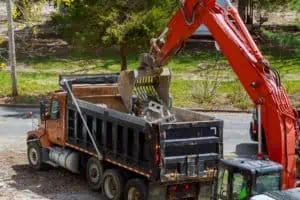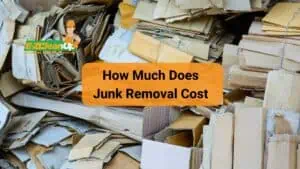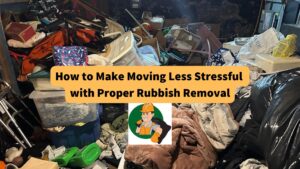Old weights can be sold, donated, recycled, or upcycled. Selling these items offers economic and environmental benefits, while donating helps communities. Recycling transforms them into new materials, and upcycling allows creative repurposing.
Discover detailed strategies for each option on what to do with old weights in our comprehensive guide.
Option #1: Selling Old Weights
Selling old weights and exercise equipment conserves resources and minimizes carbon emissions. This option reduces the need to manufacture new items.
Here’s how you can go about it:
Identifying Sellable Weights
Fitness equipment, including weights, depreciates rapidly after purchase. The resale value depends on the condition and type of equipment.
Popular items like treadmills, squat racks, dumbbell sets, and certain brands of machines are more likely to fetch a reasonable price. Remember, even if an item doesn’t retain its full value, you still benefit from the usage and lower upfront cost.
Look for Platforms for Selling
You can use various platforms to sell old weights. Online classifieds like Craigslist and local newspapers are traditional choices, but they come with challenges, such as dealing with spam and scams. For a local audience, Facebook Marketplace and neighborhood groups are effective.
Tips for Successful Selling
To maximize your chances of a successful sale, consider the following:
- Clean and prepare your gear: A well-maintained appearance can increase its value.
- Time your sale right: Selling between late November and December or during the first few weeks of January can yield better prices due to increased demand linked to holiday spending and New Year’s resolutions.
- Set a realistic price: Research what similar items have sold for, especially on platforms like eBay, to set a competitive and fair price.
- Increase your audience: You can do this by listing on multiple platforms. This approach broadens your reach and improves the likelihood of a sale.
- Be transparent: State your real reasons for selling and the condition of the equipment. Honesty builds trust with potential buyers.
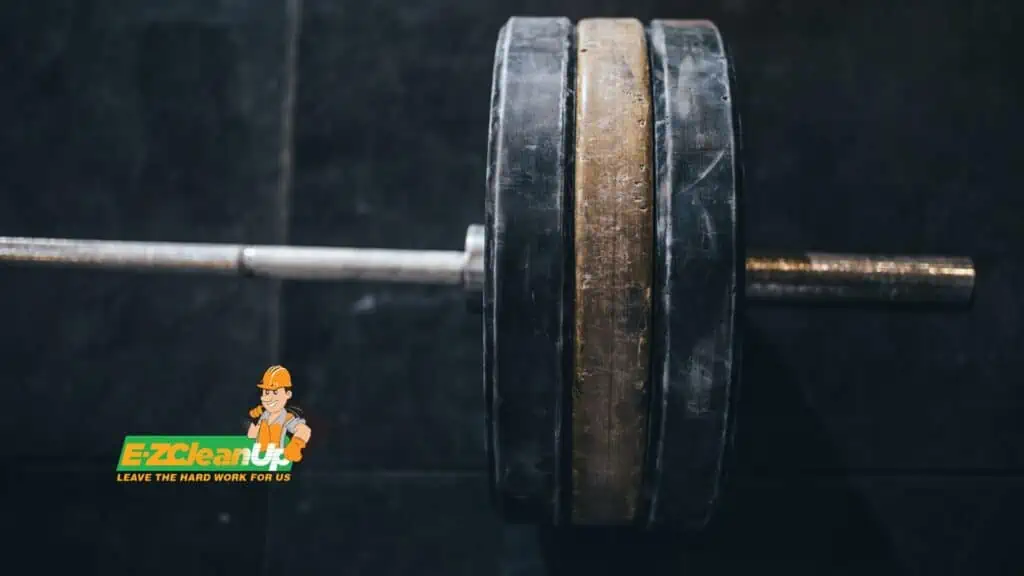
Option #2: Donating Old Weights
Donating old weights supports various communities and organizations while promoting sustainability.
Where to Donate
Several organizations accept donations of exercise equipment:
- The Salvation Army: They have a broad reach across the U.S. and are interested in exercise gear in good working order. You can schedule a pickup from your home by entering your zip code on their website.
- Habitat for Humanity: Known for housing projects, some branches may accept gym equipment. Contact your local branch to check if they accept such donations.
- Goodwill: Accepts smaller exercise equipment like resistance bands and weights. It is advisable to call your local store to inquire about the acceptance of larger equipment like treadmills.
- Pickup Please: Operated by Vietnam Veterans of America, they can pick up your donation, including weights and small exercise equipment, right from your home.
- Local Community Organizations: Local gyms, schools, YMCA, Boys and Girls Club, and community or senior centers often need sports equipment. You’ll likely need to transport the equipment yourself.
Preparing Weights for Donation
Before donating, clean and check your weights and equipment for safety. If you’re donating to an organization like Goodwill or the Salvation Army, schedule a drop-off time and ensure you receive a receipt for tax deduction purposes. For local community organizations, call ahead to confirm the need and donation process.
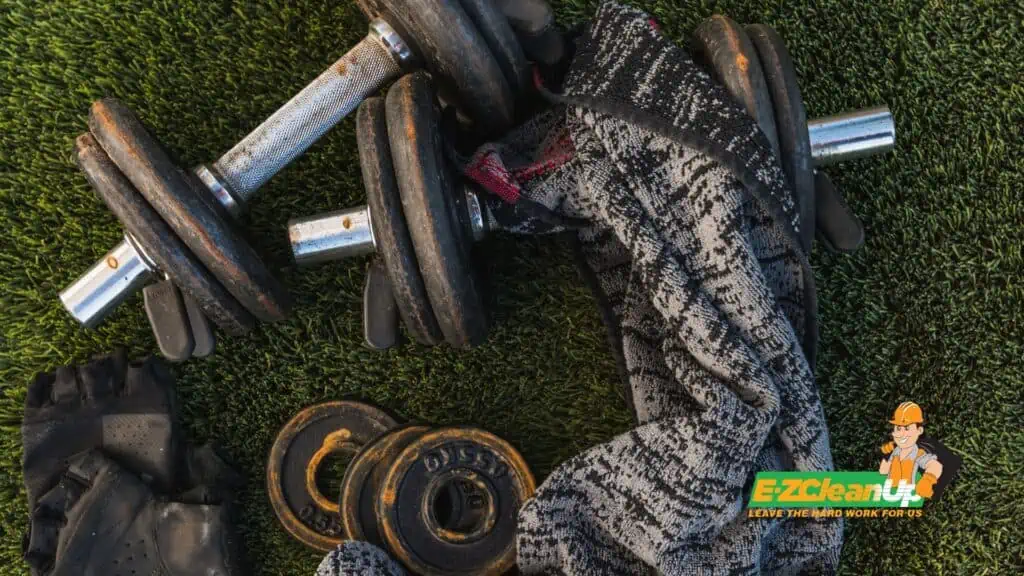
Option #3: Recycling Old Weights
Recycling old weights helps reduce waste and conserve resources by transforming them into new products.
Understanding Recyclability
Gym weights made of iron or steel are recyclable. However, you must remove the rubber or plastic coating from your weights before recycling, as recycling centers typically accept only metal parts. Sorting the weights by metal type (like iron, steel, aluminum, or brass) is essential for proper recycling.
Alongside recycling, many gyms upgrade their equipment with commercial Olympic barbells that can withstand heavy use and intense training sessions. These barbells are designed for durability, balance, and performance, making them a staple in professional fitness facilities.
Finding Recycling Centers
To locate a recycling center that accepts old weights and exercise equipment, you can start by contacting local recycling facilities or municipal waste management services. These centers usually accept metal weights as scrap metal. It’s important to confirm with them if they accept such items and to inquire about any specific guidelines or requirements for recycling.
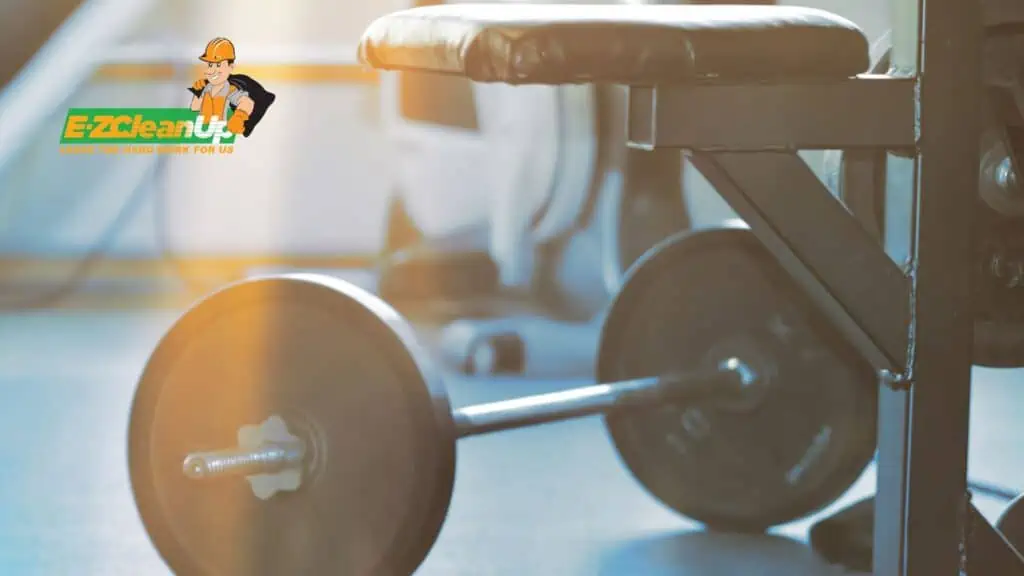
The Process of Recycling Weights
Preparing weights for recycling involves a few steps:
- Remove any rubber or plastic coatings from the weights.
- Clean the weights to remove dirt, grease, or other contaminants.
- Sort the weights by the type of metal.
- Remove any non-metal parts, like handles or screws.
- Transport the prepared weights to the recycling center.
To be accepted for recycling, it is crucial to ensure that the weights meet the recycling center’s guidelines. The recycling centers can refuse materials that do not meet their criteria or are contaminated with non-recyclable materials.
Option #4: Repurposing or Upcycling Old Weights
Upcycling old weights is eco-friendly and adds a personal touch to your space.
Explore Creative Repurposing Ideas
There are numerous innovative ways to repurpose old exercise equipment, including weights:
- Transform an old exercise bike into a stylish side table by removing the pedals and handlebars and adding a flat surface on top.
- Convert a treadmill into a functional desk. Remove the console and create a smooth working area with added storage.
- Old weight benches can be repurposed into outdoor seating. A coat of paint or stain and some comfy cushions can turn them into a chic patio or garden feature.
- Use old dumbbells as garden markers or decorative plant weights, or repurpose yoga mats as kneeling pads for gardening or plant liners.
- Children can have fun with an unused jump rope by turning it into a DIY swing, and exercise bands can be used as sensory toys or incorporated into an obstacle course.
- Larger items like treadmills can be modified into outdoor play gyms for kids, complete with climbing walls, slides, or monkey bars.
Safety Considerations
When repurposing exercise equipment, it’s crucial to prioritize safety:
- Ensure that all repurposed items are stable and capable of safely bearing weight, particularly if they will be utilized as furniture or children’s play equipment.
- Inspect for any sharp edges or protruding parts that require smoothing or covering.
- For items repurposed for outdoor use, ensure they are weatherproof and securely anchored.
Option #5: Getting Professional Removal Services
Deciding to use professional removal services for old exercise equipment can be a wise choice, especially when the items are bulky, heavy, and difficult to handle.
When to Consider Professional Help
You should consider professional help when the equipment is too large or heavy to move safely on your own. This is also a must when you lack the means to transport it to a disposal or donation site.
If the equipment is broken and requires special handling for disposal or recycling, it is advisable to use professional services. We at EZ CleanUp can pick up the weights and dispose of them safely and efficiently.
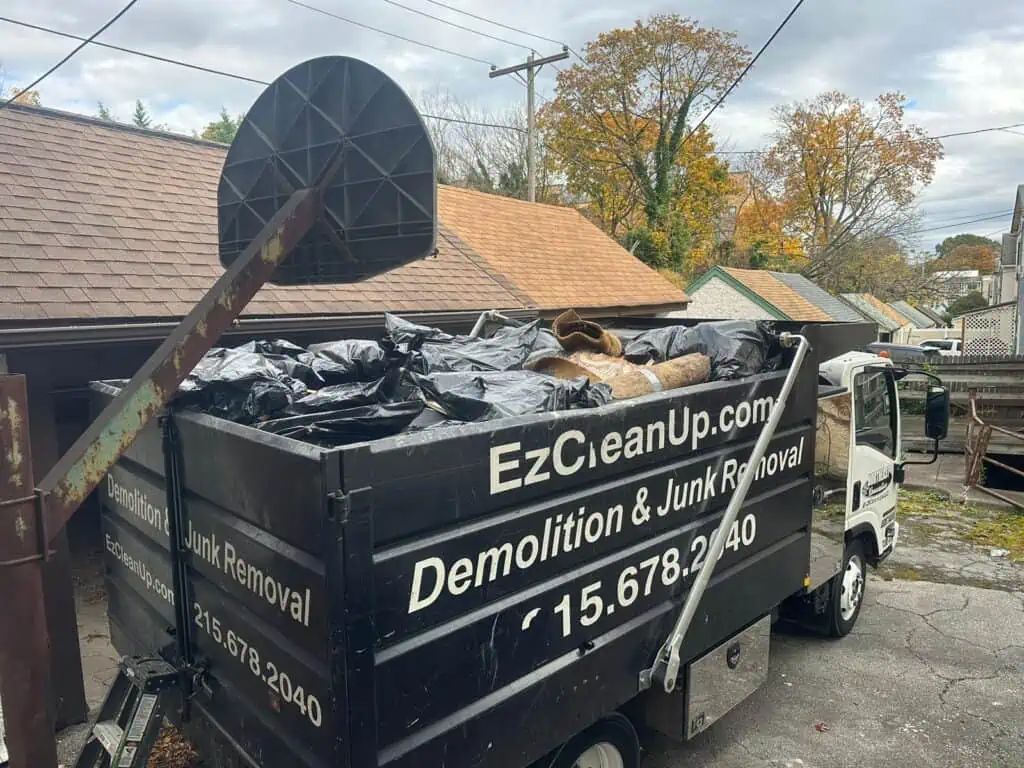
Cost Considerations
The cost of removing exercise equipment can vary depending on the company and your location. For instance, at EZ CleanUp, our pricing for junk removal, including exercise equipment, is based on the amount of truck space your items occupy.
We offer competitive rates for different truckload capacities, starting from a minimal 1/8 truckload to a full truckload. This approach ensures that you pay a fair price directly proportional to the volume of junk removed. For detailed pricing information based on specific truckload sizes, refer to our pricing page.
The Environmental Impact of Improper Exercise Equipment Disposal
The improper disposal of exercise equipment poses a significant challenge due to the bulky and heavy nature of these items.
The National Safety Council reported a significant number of injuries related to sports and recreational equipment. In 2022, emergency departments across the country treated approximately 3.6 million individuals for injuries related to sports and recreation. The most frequent causes of these injuries were activities like exercising, cycling, and playing basketball.
These emphasize the need for responsible disposal and recycling of exercise equipment, as well as proper use and maintenance, to minimize environmental impact and prevent injuries.
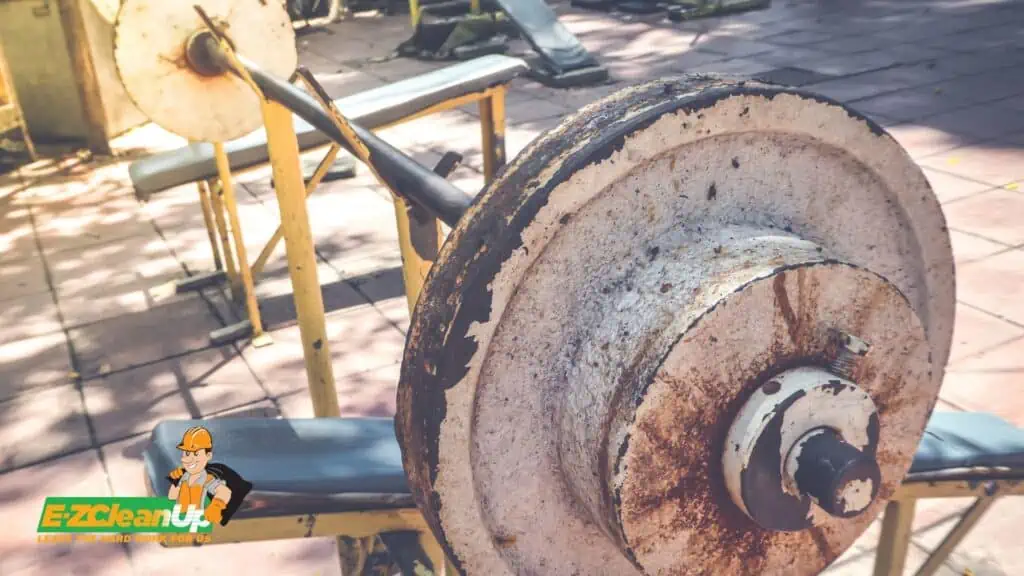
Frequently Asked Questions
Can Damaged Weights Be Recycled?
Recycling centers generally accept damaged weights, especially if they are made of metal. Many recycling centers accept metal weights as scrap metal to be melted down and reused for new products.
However, it’s important to check with your local recycling center for specific guidelines. If your weights contain other materials that can’t be recycled through traditional processes, you might need to separate and dispose of these materials differently.
How Can I Determine if My Old Weights Are Safe for Resale or Donation?
Check for signs of wear, damage, or rust that could compromise the functionality or integrity of the weights. Ensure that any adjustable parts are in good working condition and that the weights do not have any sharp edges or loose components. If they are not in a condition that you would feel comfortable using yourself, they are likely not suitable for resale or donation.
Are There Environmental Benefits to Repurposing Exercise Equipment Rather Than Recycling?
Repurposing old exercise equipment, like weights, extends the life of the product. Plus, repurposing often uses less energy than recycling, as it doesn’t require melting down and remanufacturing materials.
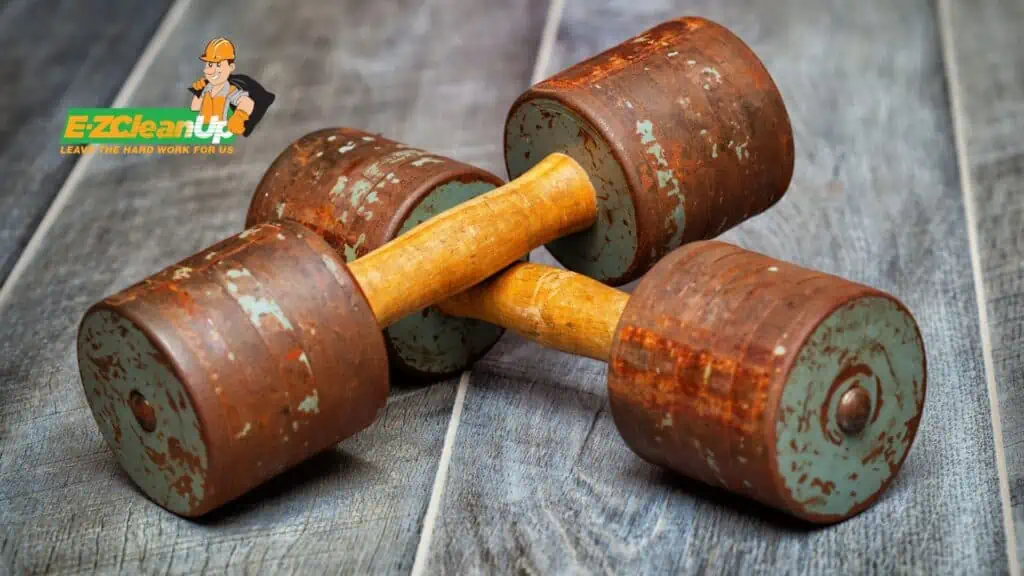
How to Know When It’s Time to Let Go of Your Old Weights?
Here are 6 signs it’s time to let go of your old weights:
- Wear and Tear: They show significant signs of wear, like rust or damage.
- Safety Issues: They feel unstable or unsafe to use.
- Not Meeting Needs: They no longer match your fitness level or goals.
- Space Constraints: You need to make room for new equipment or have limited space.
- Preference Change: You’ve shifted to different types of workouts that don’t require these weights.
- You Simply Don’t Use Them: If your old weights are sitting unused, it’s a strong indicator to let them go. I recently shared a thought on RedFin about minimalistic living – It’s good to ask yourself, “Would I buy this item again today?” This question can be a powerful tool in deciding whether to keep underused items like old weights. If they no longer fit your current lifestyle or goals, it might be time to clear them out!
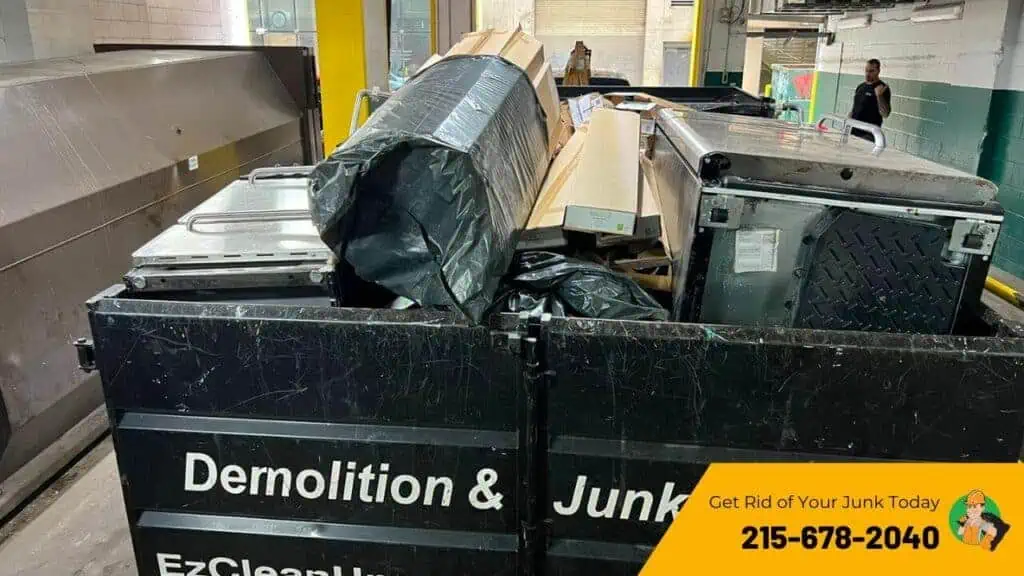
EZ CleanUp: Heavyweights in Junk Removal
At EZ CleanUp, we’ve got your back when it comes to disposing of old weights. Based in Philadelphia, we’re not just any junk removal service; we’re professionals who understand the importance of timely, responsible disposal. Whether it’s recycling, donating, or outright disposal, we handle each task with the care and efficiency it deserves.
Our company is fully licensed and insured. We guarantee the safe and high-standard completion of every job. Rely on us for a service that’s not just about lifting heavy stuff but also about lifting the weight off your shoulders.
So, if you’re looking to clear out those old weights, remember, EZ CleanUp is just a call away. Let us handle the heavy lifting.

